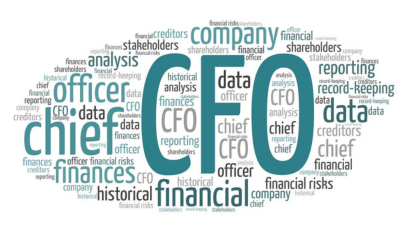When considering funds for your startup, you might hear about angel investors. But what is an angel investor anyway? Angel investors are usually individuals who invest in startup companies for a potential payout in the future if the business is a success. Most angel investors are former entrepreneurs, giving them the expertise to successfully back a new startup like yours. Some might consider these investments risky, but many individuals still prefer this investment opportunity over others in the market.
How Angel Investing Works
Angel investments are commonly done early in the business’s development, often referred to as “seed funding” or “early-stage funding.” The money invested is used to help these startup companies develop their ideas and technologies and generate revenue.
Here’s an example of how an angel investment process rolls out:
- Angel investors connect with already-established businesses, or a new startup reaches out to them through word of mouth, online business forums, or local Meetups.
- The angel investors and startup founders discuss the product, their backgrounds, and what they will offer each other in return for funding.
- Then a written contract details the terms and conditions of the investment and other legal matters.
- Once the contract is signed, the investment funds are released.
Angel Investors vs. Venture Capitalists
In a nutshell, angel investors are more likely to invest in startups that aren’t yet ready for venture capital. They’re also more likely to invest in startups with a proven business model and an established track record of success. On the other hand, venture capitalists (VCs) tend to invest in startups that have already proved themselves through venture capital financing. They are now seeking another round of funding (known as Series A). The goal here is for VCs to provide enough money for the company to grow into something great—and then sell it off when it’s time.
What Do Angel Investors Look For In a Startup?
Here’s what an angel investor looks for in a new company:
- Product-market fit: Angels want to invest in companies that have proven they can sell their product or service and have customers willing to pay for it.
- Team and execution: Even if your business has a product-market fit, you need a great team with the right skill set to execute on this opportunity.
- Business model, capital requirements, and exit strategy: They want to know what the future goals will be for the business and how you will execute them.
Pros and Cons of Working with Angel Investors
If you’re looking for a funding partner, angel investors are the perfect match.
- They’re more flexible than VCs and can offer more valuable experience support.
- Financing from angel investors doesn’t require registering with SEC.
- Once angels invest, they’re likely to add more cash later in another funding round.
But a major con of working with angel investors instead of borrowing money from a bank is:
- You will need to give up some amount of equity in your business.
Where Do You Find Angel Investors?
When deciding to use an angel investor, choosing the right one for your business is critical. Finding angel investors is much like finding any other business partner or job prospect. You can ask your friends, family, and colleagues if they know anyone who might be able to help you out.
Don’t know where to start, here’s a list of places where you may be able to find an angel investor:
- Angel investor directories: These websites allow entrepreneurs (or investors) to search for one another based on location or other criteria.
- Angel investor networks: Various professional organizations exist specifically for connecting investors with entrepreneurs through events and online forums.
- Angel investor meetups: – These local gatherings bring together like-minded people interested in helping each other achieve common goals such as learning from experienced mentors and expanding personal networks.
Making a Choice on Which Angel Investor Is Right For You
Anyone can be an angel investor, but here are some key traits that successful angels share and you should look for:
- Taking risks
- Passion for entrepreneurship
- Helping others succeed
- Ability to work with other people
Conclusion
Angel investors are essential players in the startup ecosystem. So if you’re ready to work with an angel investor, we hope this post has given you some insight into what they look for when choosing startups. If you know who might be right for your business, don’t hesitate.




